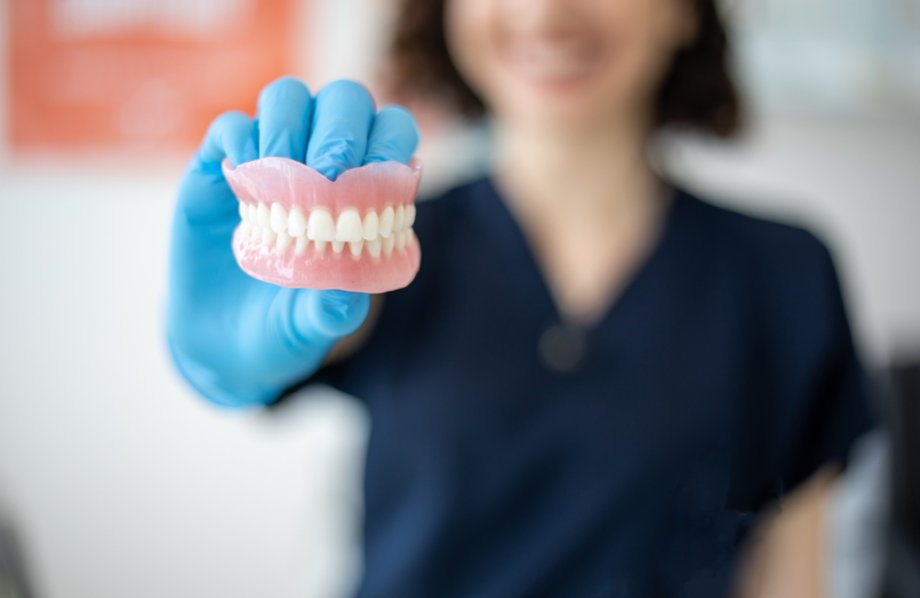MyWorldGo
The Difference of Dental Implant and Dentures
Blog Information
- منشور من طرف : Indiana Jude
- نشر على : Oct 25, 2023
- الآراء : 173
- الفئة : جنرال لواء
- وصف : For many Australians, deciding between dental implants and dentures can be a significant decision, often driven by the desire to restore confidence in their smile and overall dental functionality. Both options offer unique advantages, and understanding their differences is vital in making an informed choice. This article, courtesy of Admire Dentistry, will highlight the distinctions between dental implants and dentures. Basics of the Two Dental Implants: A dental implant is a titanium post surgically positioned into the jawbone beneath the gum line. This allows the dentist to mount a replacement tooth or bridge into that area. Essentially, it acts as an artificial tooth root, offering a long-term solution for missing teeth. Dentures: Dentures are removable replacements for missing teeth and surrounding tissues. They can be complete (replacing all teeth) or partial, filling in the spaces left by lost or removed teeth. Stability and Comfort Dental Implants: Since implants fuse with your jawbone, they provide stable support for artificial teeth. This ensures that bridges or dentures mounted to implants won't slip or shift in the mouth, which is especially crucial when eating and speaking. Dentures: While modern dentures are more comfortable than ever, they may not offer the same level of stability as implants. Some wearers might experience slipping or feel the need to reposition the denture occasionally. Aesthetics and Natural Feel Dental Implants: Implants tend to look and feel more like natural teeth than dentures. Because they're anchored securely to your jawbone, they often offer a more natural bite and less facial sagging. Dentures: Although denture technology has improved significantly, they may not always have the same aesthetic appeal or natural feel as dental implants. Maintenance and Care Dental Implants: Implants function similarly to natural teeth. They require regular brushing, flossing, and dental check-ups. However, they aren't susceptible to cavities (though gum health is still paramount). Dentures: Require removal and cleaning daily. Wearers need to be mindful of certain foods that might require adjustments or replacements over time. Longevity and Durability Dental Implants: If cared for properly, dental implants can last a lifetime, making them a more permanent solution. Dentures: Even with excellent care, dentures may need to be replaced or adjusted every 5-8 years. Choosing between dental implants and dentures largely depends on individual needs, budget, and the condition of one's jawbone and gums. Both solutions aim to restore functionality and enhance appearance. If you're contemplating which option is best for you, the experts at Admire Dentistry are always on hand to provide guidance, ensuring that your smile remains radiant and healthy.
نظرة عامة
- For many Australians, deciding between dental implants and dentures can be a significant decision, often driven by the desire to restore confidence in their smile and overall dental functionality. Both options offer unique advantages, and understanding their differences is vital in making an informed choice. This article, courtesy of Admire Dentistry, will highlight the distinctions between dental implants and dentures.Basics of the Two
- Dental Implants: A dental implant is a titanium post surgically positioned into the jawbone beneath the gum line. This allows the dentist to mount a replacement tooth or bridge into that area. Essentially, it acts as an artificial tooth root, offering a long-term solution for missing teeth.
- Dentures: Dentures are removable replacements for missing teeth and surrounding tissues. They can be complete (replacing all teeth) or partial, filling in the spaces left by lost or removed teeth.
Stability and Comfort- Dental Implants: Since implants fuse with your jawbone, they provide stable support for artificial teeth. This ensures that bridges or dentures mounted to implants won't slip or shift in the mouth, which is especially crucial when eating and speaking.
- Dentures: While modern dentures are more comfortable than ever, they may not offer the same level of stability as implants. Some wearers might experience slipping or feel the need to reposition the denture occasionally.
Aesthetics and Natural Feel- Dental Implants: Implants tend to look and feel more like natural teeth than dentures. Because they're anchored securely to your jawbone, they often offer a more natural bite and less facial sagging.
- Dentures: Although denture technology has improved significantly, they may not always have the same aesthetic appeal or natural feel as dental implants.
Maintenance and Care- Dental Implants: Implants function similarly to natural teeth. They require regular brushing, flossing, and dental check-ups. However, they aren't susceptible to cavities (though gum health is still paramount).
- Dentures: Require removal and cleaning daily. Wearers need to be mindful of certain foods that might require adjustments or replacements over time.
Longevity and Durability- Dental Implants: If cared for properly, dental implants can last a lifetime, making them a more permanent solution.
- Dentures: Even with excellent care, dentures may need to be replaced or adjusted every 5-8 years.
Choosing between dental implants and dentures largely depends on individual needs, budget, and the condition of one's jawbone and gums. Both solutions aim to restore functionality and enhance appearance. If you're contemplating which option is best for you, the experts at Admire Dentistry are always on hand to provide guidance, ensuring that your smile remains radiant and healthy.

